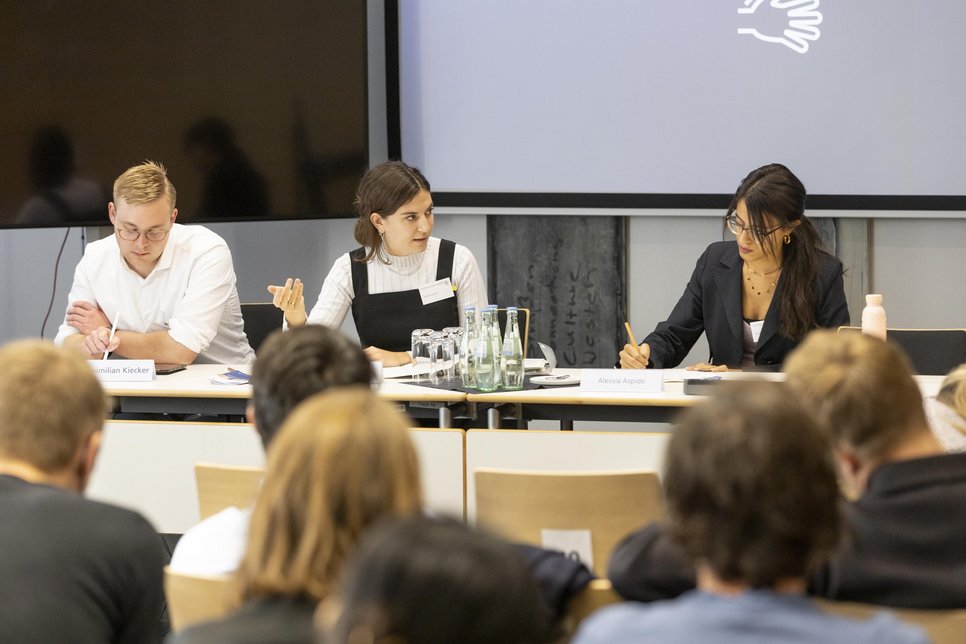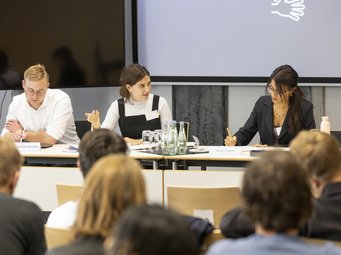
Academic Program and Approach
Interdisciplinary cooperation enables the program to combine insights from economic sociology, comparative and international political economy, and organization studies.
Research at the International Max Planck Research School on the Social and Political Constitution of the Economy (IMPRS-SPCE) investigates the complex linkages between economic and social action. Just as politics and social life are affected by pressures for economic efficiency and economic power, economic action is embedded in and indeed presupposes an infrastructure of social institutions and political decisions. In this sense, the economy as a system of action is both politically and socially constituted.
Dialogue between disciplines
The mutual interdependence between the economy and society has long been a core topic in both sociology and political science, or political economy. The School undertakes to relate these two traditions systematically in an effort to exploit and enhance their synergies. In sociology, the study of the social embeddedness of economic action is at the center of a fast-growing subdiscipline, often referred to as the "New Economic Sociology."
Sociology is thus reclaiming territory it had long abandoned to economics. The focus of the new economic sociology is on the investigation of the functioning of markets. While economic sociology tends to emphasize the contribution of informal social structures to the facilitation and direction of economic action, political scientists have studied the contribution of formal political institutions and collective decision-making to economic governance. The latest offshoot of this literature, which goes back to the institutional economics of the early twentieth century and includes the study of organized capitalism in the 1960s and neo-corporatism in the subsequent decades, is the current work on the convergence and divergence of different "varieties of capitalism."
Understanding economic behavior

Bringing into dialogue economic sociology and institutionalist political science, work at the School pursues an empirical-analytical approach rather than an efficiency-theoretical, prescriptive approach. Understanding and explaining how economic behavior is influenced by its social context and vice versa takes precedence over prescriptive theorizing aimed at finding optimally efficient solutions to economic problems. Unlike the various efficiency-theoretical approaches in political economy, the program's research tries to understand how economic institutions evolve in the real world, rather than determining how they should, or would, evolve in an ideal world.
Technically speaking, while efficiency theory and prescriptive modeling exogenize both the meaning of efficiency and the preferences of actors, economic sociology and institutionalist political economy see these as themselves socially and politically constituted, and they therefore undertake to treat them as endogenous. Endogenizing economic preferences in social theory and exploring the social and political constitution of economic efficiency is at the core of the theoretical program of the Research School.
